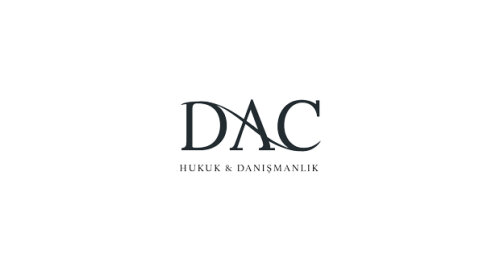Best Trusts Lawyers in Atasehir
Share your needs with us, get contacted by law firms.
Free. Takes 2 min.
List of the best lawyers in Atasehir, Turkey
About Trusts Law in Atasehir, Turkey
Trusts are unique legal entities in many jurisdictions, often used to manage and protect assets. In Turkey, however, the concept of a "trust" as understood in common law countries like the UK or the US does not directly exist. Instead, Turkey utilizes the notion of "fiducia" or "fiduciary transfers" in certain circumstances, primarily within the framework of inheritance law and financial transactions. Atasehir, a bustling district in Istanbul, follows the national legal framework set out by Turkish civil law. While the trust mechanism isn't directly applicable, various legal arrangements can serve similar purposes, including setting up foundations or appointing fiduciary agents.
Why You May Need a Lawyer
Individuals in Atasehir may require legal assistance with trusts-related issues for various reasons, such as estate planning, tax optimization, inheritance disputes, or management of family assets. Moreover, since the Turkish legal system does not have a direct equivalent to Anglo-Saxon trusts, specialized legal guidance is often necessary to adapt similar structures under Turkish law principles. Lawyers can help navigate complex transactions, ensure compliance with local laws, and help in structuring legal arrangements that effectively protect and manage assets.
Local Laws Overview
Trusts in their traditional sense are not part of Turkish law. However, legal frameworks are available for asset management and protection, which includes:
- Foundations: These can be established to manage assets for a specific purpose, be it charitable or for family wealth management.
- Fiduciary Arrangements: The use of fiduciary transfers can serve as an alternative to manage assets under a fiduciary duty.
- Inheritance Law: Governed by the Turkish Civil Code, where specific rules regarding succession rights apply.
- Legal Entitlements: Turkish law emphasizes the legal entitlements and protecting the rights of minors and dependents.
Frequently Asked Questions
What is the equivalent of a trust in Turkey?
Turkey does not recognize trusts as understood in Anglo-Saxon law. However, similar arrangements like foundations or fiduciary transfers can provide some comparable benefits.
Can I set up a trust in Atasehir for estate planning?
You cannot set up a traditional trust, but you can explore other legal structures such as foundations or fiduciary arrangements under Turkish law.
How can I ensure my assets are managed properly after my death?
Establishing detailed wills, appointing fiduciaries, and understanding the rules of inheritance law are critical. Consulting a lawyer can provide clarity and legal assurance.
What happens if there's a dispute over a fiduciary arrangement?
Any dispute under a fiduciary arrangement can be resolved following Turkish contractual and civil law, where courts will enforce fiduciary duties.
Are foreign trusts recognized in Turkey?
While Turkey may recognize foreign trusts to some extent, especially in international contexts, specific benefits or legal protections would not be applicable under Turkish jurisdiction.
Can foreigners set up a fiduciary arrangement in Atasehir?
Yes, foreigners have the right to enter into fiduciary agreements, but they must comply with Turkish legal provisions and obtain necessary legal guidance.
What are the tax implications of setting up a foundation?
Foundations may have specific tax implications, and it's essential to consult both legal and financial experts to understand obligations under Turkish law.
Is a lawyer necessary for creating a fiduciary transfer?
While not legally mandatory, hiring a lawyer is highly recommended to ensure proper execution and legal compliance.
What are the responsibilities of a fiduciary agent?
A fiduciary agent is legally obligated to act in the best interests of the beneficiaries, managing and protecting assets as per the fiduciary duty imposed under Turkish law.
How can minors benefit from legal protections in asset management?
Turkish law provides strict regulations ensuring that minors’ rights are protected through guardianship and family court involvement when necessary.
Additional Resources
The following resources can provide valuable assistance and insights:
- Turkish Bar Association - Guidance on finding competent legal assistance.
- Istanbul Chamber of Commerce - Offers resources on fiduciary arrangements and business-related legal advice.
- Directorate General of Foundations - Information and assistance on creating and managing foundations.
- Local law firms with expertise in estate planning and asset management.
Next Steps
If you need legal assistance with asset management or any fiduciary concerns in Atasehir, Turkey, consider the following steps:
- Consult a legal professional specializing in Turkish civil and inheritance law.
- Perform preliminary research using the additional resources listed above.
- Prepare documentation of your assets and any existing legal arrangements.
- Schedule consultations with multiple lawyers to explore different perspectives and solutions.
Lawzana helps you find the best lawyers and law firms in Atasehir through a curated and pre-screened list of qualified legal professionals. Our platform offers rankings and detailed profiles of attorneys and law firms, allowing you to compare based on practice areas, including Trusts, experience, and client feedback.
Each profile includes a description of the firm's areas of practice, client reviews, team members and partners, year of establishment, spoken languages, office locations, contact information, social media presence, and any published articles or resources. Most firms on our platform speak English and are experienced in both local and international legal matters.
Get a quote from top-rated law firms in Atasehir, Turkey — quickly, securely, and without unnecessary hassle.
Disclaimer:
The information provided on this page is for general informational purposes only and does not constitute legal advice. While we strive to ensure the accuracy and relevance of the content, legal information may change over time, and interpretations of the law can vary. You should always consult with a qualified legal professional for advice specific to your situation.
We disclaim all liability for actions taken or not taken based on the content of this page. If you believe any information is incorrect or outdated, please contact us, and we will review and update it where appropriate.








